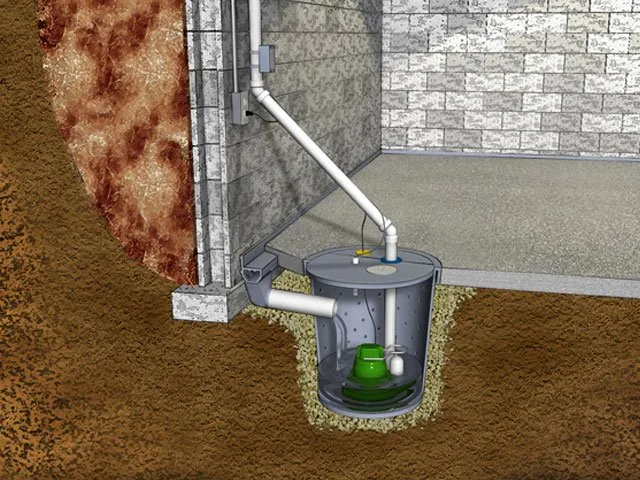Top Notch Water Filtration Systems: Making Sure Clean and Pure Drinking Water
Top Notch Water Filtration Systems: Making Sure Clean and Pure Drinking Water
Blog Article
Recognizing the Key Parts of Effective Water Purification Systems

Importance of Water Purification Systems
Water purification systems play an essential function in making sure accessibility to clean and risk-free alcohol consumption water by effectively removing pollutants and contaminations. These systems are crucial in addressing the expanding worries over water high quality and the possible health and wellness dangers related to consuming polluted water. By using different purification devices such as reverse osmosis, triggered carbon, and UV sterilization, water purification systems can effectively eliminate hazardous substances like microorganisms, viruses, heavy steels, and chemicals from the water supply.
Moreover, water filtering systems assist to enhance the taste and odor of water by eliminating chlorine, sediments, and various other toxins that can affect its high quality. Well Pump Replacement. This improvement in water high quality not only makes it a lot more palatable yet likewise urges people to consume an appropriate quantity of water daily, promoting much better hydration and general wellness
Kinds Of Filtering Elements

Physical filters are developed to literally stress out impurities from the water. These filters can be constructed from materials like ceramic, carbon, or perhaps sand, and they function by capturing particles larger than the filter's pores as water passes through.
Chemical filters use various chemical procedures to remove contaminants from the water. Instances consist of triggered carbon filters, which adsorb impurities, and turn around osmosis membrane layers, which utilize stress to separate pollutants from the water.
Biological filters use living organisms like algae or bacteria to break down raw material and pollutants in the water. These filters are often made use of in wastewater treatment plants or all-natural water purification systems.
Comprehending the various kinds of filtration components is critical for picking the most ideal water filtration system for details filtration needs.
Feature of Sediment Filters
Sediment filters play an essential function in water filtration systems by successfully recording solid particles suspended in the water. These try this out filters are generally the first line of protection in a filtering system, removing bigger particles such as sand, silt, dust, and rust before the water relocates via finer filtration phases. By capturing these sediments, the filters stop them from getting to downstream parts, hence expanding the lifespan and efficiency of the entire system.
Neglecting this maintenance can lead to blocking, decreased water flow, and jeopardized filtering performance. On the whole, debris filters are essential parts that add dramatically to the performance of water filtering systems.
Duty of Activated Carbon Filters
Playing a crucial role in water filtration systems, triggered carbon filters contribute in eliminating contaminations and contaminants from the water supply. These filters are made to adsorb and trap a vast range of toxins, including chlorine, volatile natural compounds this post (VOCs), pesticides, and herbicides. The activated carbon product has a large surface area, enabling the efficient trapping of impurities through a procedure called adsorption. As water travels through the filter, the triggered carbon holds and attracts onto the pollutants, guaranteeing that the water that appears on the other side is cleaner and more secure for intake.
Triggered carbon filters are very reliable at boosting the preference and smell of water by decreasing chemicals that can affect its quality. Due to their flexibility and integrity, activated carbon filters are a crucial element in guaranteeing that water is detoxified to the highest requirements prior to getting to consumers.
Comprehending Reverse Osmosis Solutions
Reverse osmosis systems are innovative water filtering systems that use an advanced procedure to remove impurities and impurities from alcohol consumption water. These systems work by applying pressure to the water, requiring it with a semi-permeable membrane layer.
One secret advantage of reverse osmosis systems is their ability to remove a vast array of contaminants, consisting of hefty metals, liquified bacteria, infections, and solids. This makes them highly reliable in improving the total top quality and safety and security of alcohol consumption water. site web In addition, reverse osmosis systems are reasonably low-maintenance and can be installed under the sink or in a main filtration system, offering convenient access to clean water throughout the house. On the whole, recognizing just how reverse osmosis systems function can aid individuals make informed decisions about their water filtration demands.
Final Thought
In verdict, efficient water purification systems are essential for ensuring clean and risk-free alcohol consumption water. By comprehending the function and function of each part, people can make informed choices when selecting a water filtering system.
Water filtration systems play a critical duty in making certain accessibility to tidy and secure drinking water by efficiently removing pollutants and contaminations. By utilizing numerous purification systems such as reverse osmosis, triggered carbon, and UV sanitation, water purification systems can efficiently get rid of harmful materials like bacteria, infections, hefty metals, and chemicals from the water supply.
Sediment filters play a critical role in water filtration systems by successfully recording solid particles suspended in the water (Water Softeners).Playing a critical duty in water filtration systems, activated carbon filters are critical in getting rid of contaminations and impurities from the water supply.Reverse osmosis systems are advanced water filtration systems that employ a sophisticated process to eliminate pollutants and pollutants from alcohol consumption water
Report this page